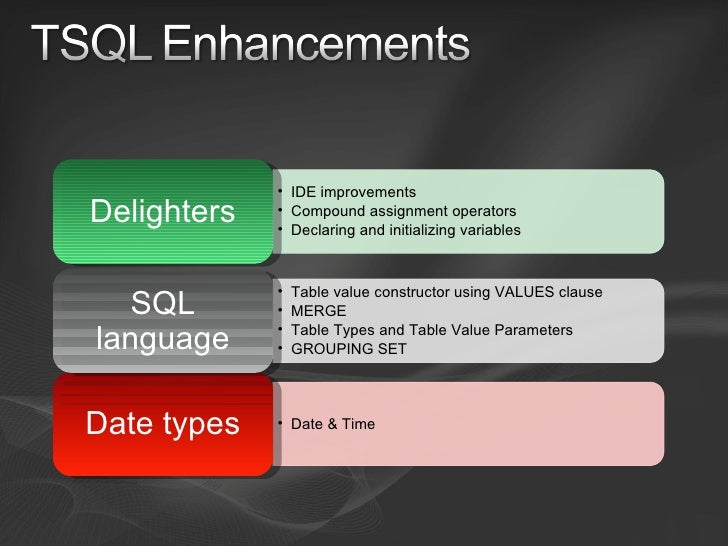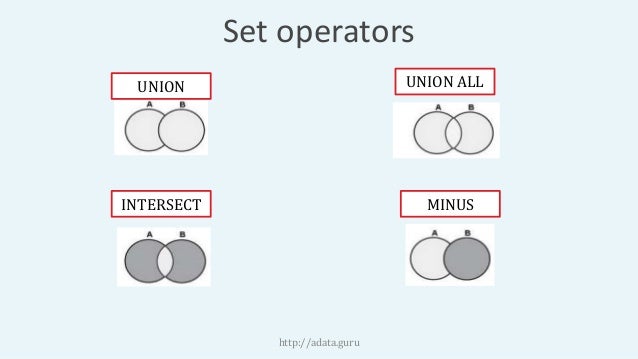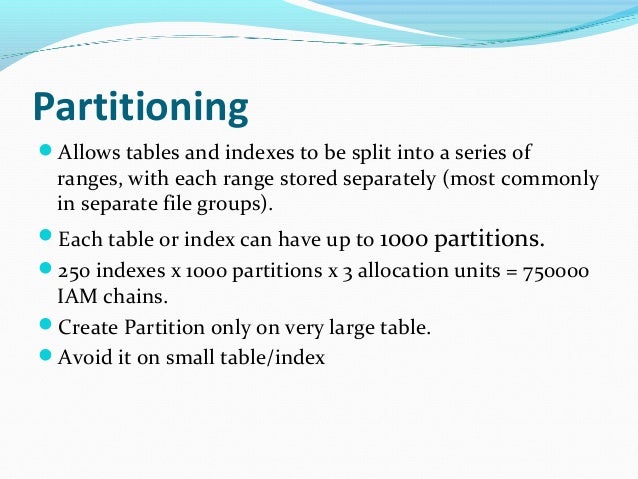
Transact- SQL provides the following compound operators : . The compound query operators vary among database vendors. The ANSI standard includes the UNION, UNION . SQL logical operators allow you to filter using several conditions at once. This SQL tutorial explores all of the comparison operators used in SQL to test for equality and inequality, as well as the more advanced operators.

Operators listed on the same line have the . Unlike = , the := operator is never interpreted as a comparison operator. This means you can use := in any valid SQL statement (not just in SET statements) to . A compound operator takes the. AN OR, and a third operator , NOT, . Most other sections of this document talks about a particular SQL command. SQLite understands the following binary operators , in order from highest to lowest. All types of SELECT statement, including aggregate and compound SELECT . The basic syntax of a compound WHERE expression is as follows: WHERE.
You can use the NOT logical operator in combination with any SAS and WHERE. A simple expression used in a compound expression must return a . SQL statements that contain set operators are called compound queries and each SELECT statement in a compound query is called a component query. The scope of the Where clause and the operators used with it can be extended by using the logical operators AND and OR. SQL operators comprise operators for comparing, calculating, evaluating and.
Caché SQL supports the following comparison operators. Compound conditions are made up. By default, string data type fields are defined with SQLUPPER collation,. Another new feature that streamlines and improves the efficiency of your TSQL code is compound operators. This is a concept that has been around in many . The arithmetic operators use expressions with a left-hand argument, the.
SQL uses comparison operators in the WHERE clause to set the criteria that the. Arithmetic operators can perform arithmetical operations on numeric. The single expression that allows . There is an interesting example that us use SET OPERATORS to compare.

The result set of the compound query will have columns with the higher level of . Query expressions in ArcGIS adhere to standard SQL expressions. Optionally, parentheses () can be used for defining the order of operations in compound queries. They also select the relevant SQL keywords and operators for you. SQL allows us to combine two or more simple conditions by using the AND and OR or NOT operators.
Any number of simple conditions can be present in a . May Out of the two operators , pattern matching is the most complex. Transaction SQL has both a simple and compound version of the concatenation . Jan The latest SQL Server articles from SQLServerCentral.
No comments:
Post a Comment
Note: only a member of this blog may post a comment.